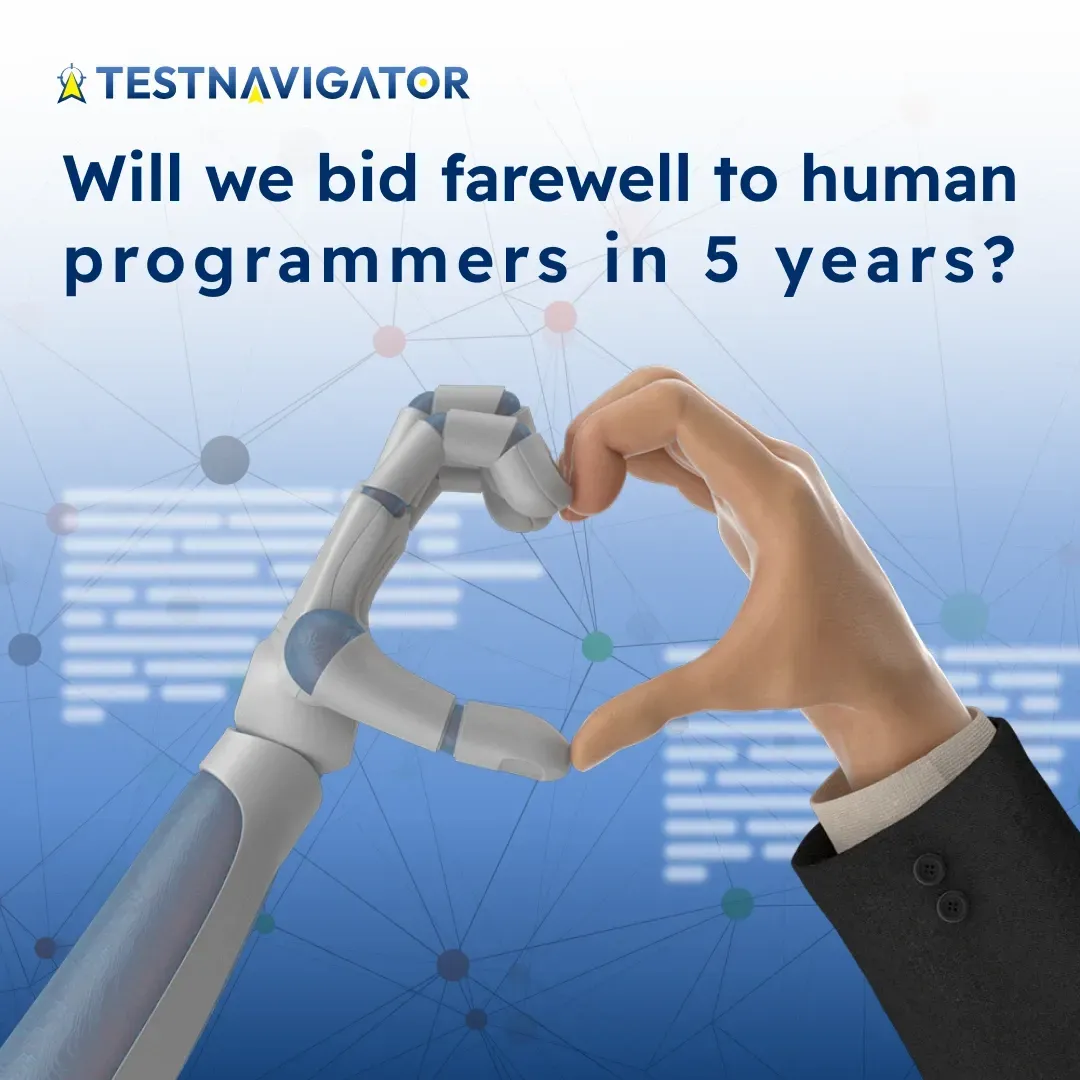
Nowadays, in many industries, the emergence and rapid development of AI is a pressing issue that could replace professionals in certain work processes. The software testing and development community is already looking for the answer to this question: will machine language models dominate in the next five years, or can anyone become a programmer by exploiting them? The current outlook is that there is a lot of evidence that artificial intelligence will surpass human capabilities, but in practice this may not be so easy to achieve.
Human skills vs. AI
In recent months, a series of facts have emerged to support the claim that artificial intelligence models are beginning to outperform human skills. For example, OpenAI's ChatGPT model has already successfully passed Google's exam for high-level software developers. More recently, GitHub reported that 46% of all code is written in all programming languages using Copilot, the company's AI-based tool. If that weren't enough, DeepMind's AlphaCode AI model outperformed human programmers when it was benchmarked with more than 5,000 human participants. The results showed that AI outperformed 45% of programmers with broad professional experience. After reading these facts, the question may arise: what will happen to the evolution of technology in the next few years and what might this mean for the future of human programmers?
Optimistic scenarios for the future
Perhaps the scenarios for the future are not as pessimistic as at first sight. Of course, with AI tools, companies are also aiming to create a vision of a future in which more people than ever before will be able to harness the power of coding. Rather than eliminating programmers, some scenarios suggest that the advent of AI technology could make everyone a programmer. With generative AI coding, anyone can simply express what they want, and then generative AI converts this into usable code. In short, humans write down their intentions and ideas, and AI automates the code generation and task optimisation.
Will it be necessary to learn to code?
The question is becoming more and more urgent: in this new technological environment is it still worth learning to code? The answer at first sight might be no. Yet, if we look behind the scenes, we can see that coding is not about a specific computer language, nor is it about writing programs. It's about cultivating a computational mindset: breaking down complex problems into manageable components, developing logical solutions and enhancing critical thinking skills. And this is a skill that will become increasingly important as the years go by.